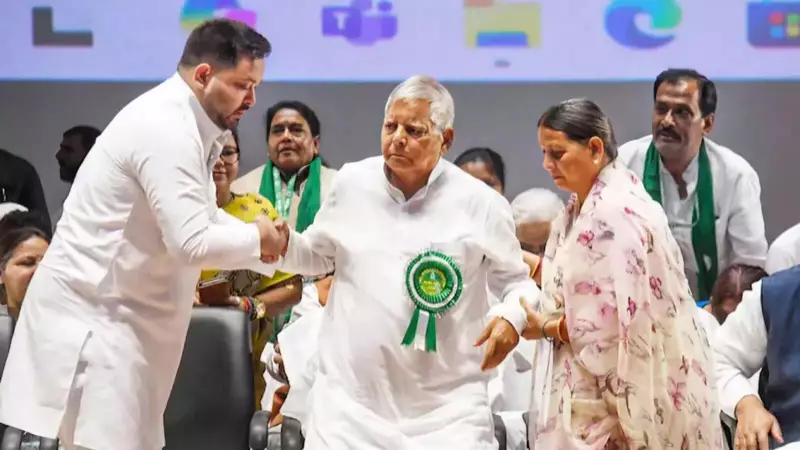
In a dramatic move to prevent the complete collapse of the opposition INDIA alliance, two senior Congress leaders made an emergency trip to Patna on Thursday for crucial talks with Rashtriya Janata Dal (RJD) chief Lalu Prasad and his son Tejashwi Yadav.
The high-stakes meeting comes amid growing concerns about the stability of the 28-party opposition coalition, which has been showing significant strain in recent weeks. Congress veterans Ashok Gehlot and Allavaru rushed to the Bihar capital as alarm bells rang within the opposition ranks.
Emergency Mission to Save Coalition
The emergency diplomatic mission saw the Congress leaders engaging in extensive discussions with the RJD leadership at Lalu Prasad's residence. The talks, described as "crucial" by insiders, focused on addressing the growing differences and strengthening the opposition front against the ruling NDA.
Sources close to the development revealed that the Congress delegation emphasized the urgent need for unity and coordination among alliance partners. The meeting assumes critical importance with several key state assemblies and the general elections looming on the political horizon.
Growing Cracks in Opposition Unity
The INDIA (Indian National Developmental Inclusive Alliance) bloc, formed with much fanfare earlier this year, has recently been witnessing internal tensions and coordination issues. Several constituent parties have expressed dissatisfaction with the alliance's functioning and seat-sharing arrangements.
Political analysts suggest that the Congress leadership's proactive approach demonstrates their recognition of the RJD's crucial role in Bihar politics and the broader opposition landscape. The Bihar-based party remains a significant force in the state and its support is considered vital for any national opposition coalition.
What This Means for 2024 Elections
The success or failure of this reconciliation effort could have far-reaching implications for the opposition's chances in the upcoming electoral battles. A united INDIA bloc poses a formidable challenge to the ruling coalition, while a fractured opposition would significantly benefit the incumbent government.
Both sides have maintained public silence about the specific outcomes of the meeting, but sources indicate that confidence-building measures and better communication channels were key discussion points. The political fraternity is closely watching whether this intervention will stem the rot in the opposition alliance or if deeper structural issues continue to plague the coalition.






